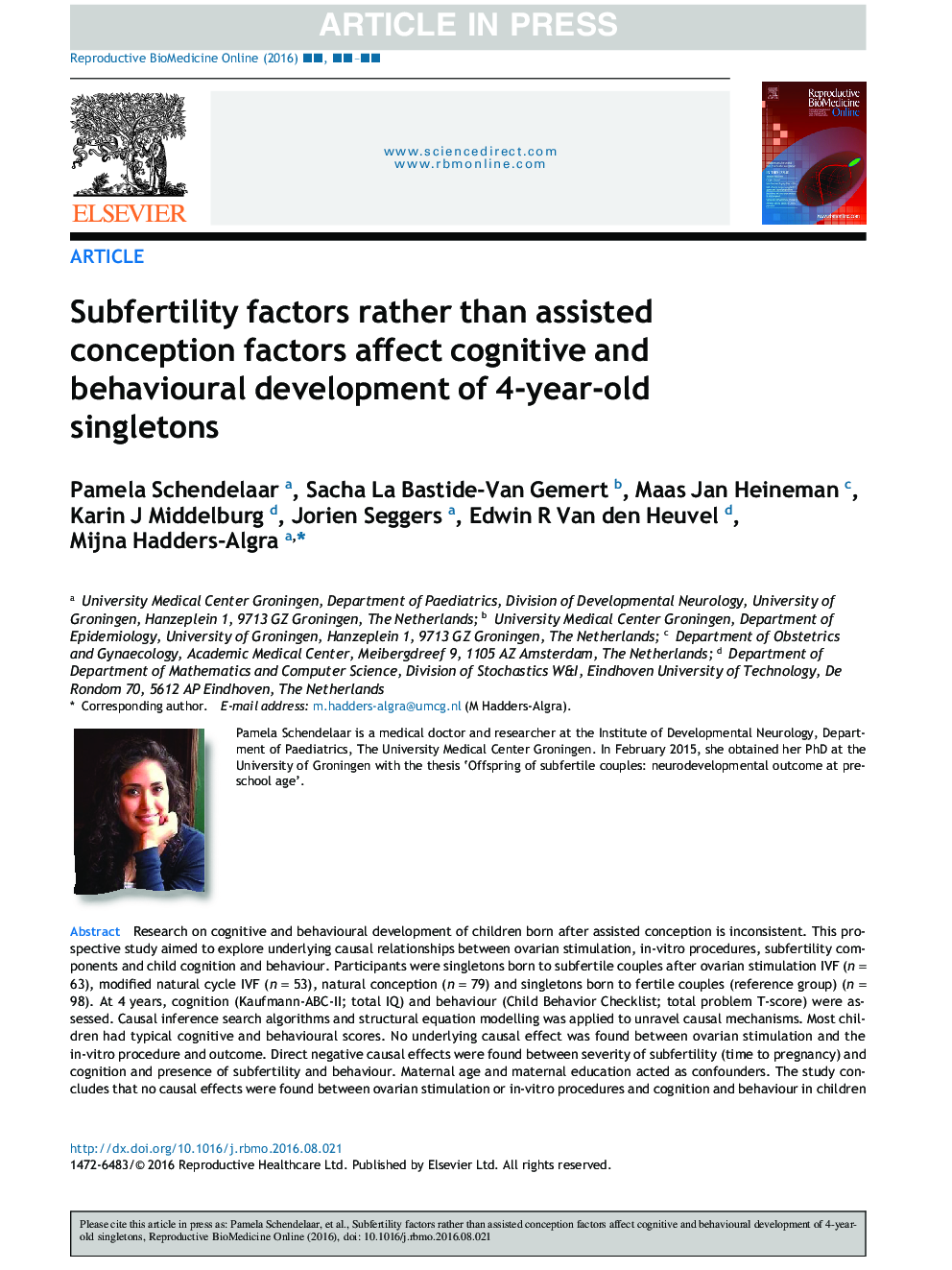| Article ID | Journal | Published Year | Pages | File Type |
|---|---|---|---|---|
| 5696834 | Reproductive BioMedicine Online | 2016 | 11 Pages |
Abstract
Research on cognitive and behavioural development of children born after assisted conception is inconsistent. This prospective study aimed to explore underlying causal relationships between ovarian stimulation, in-vitro procedures, subfertility components and child cognition and behaviour. Participants were singletons born to subfertile couples after ovarian stimulation IVF (n = 63), modified natural cycle IVF (n = 53), natural conception (n = 79) and singletons born to fertile couples (reference group) (n = 98). At 4 years, cognition (Kaufmann-ABC-II; total IQ) and behaviour (Child Behavior Checklist; total problem T-score) were assessed. Causal inference search algorithms and structural equation modelling was applied to unravel causal mechanisms. Most children had typical cognitive and behavioural scores. No underlying causal effect was found between ovarian stimulation and the in-vitro procedure and outcome. Direct negative causal effects were found between severity of subfertility (time to pregnancy) and cognition and presence of subfertility and behaviour. Maternal age and maternal education acted as confounders. The study concludes that no causal effects were found between ovarian stimulation or in-vitro procedures and cognition and behaviour in childrenaged 4 years born to subfertile couples. Subfertility, especially severe subfertility, however, was associated with worse cognition and behaviour.
Related Topics
Health Sciences
Medicine and Dentistry
Obstetrics, Gynecology and Women's Health
Authors
Pamela Schendelaar, Sacha La Bastide-Van Gemert, Maas Jan Heineman, Karin J. Middelburg, Jorien Seggers, Edwin R. Van den Heuvel, Mijna Hadders-Algra,
